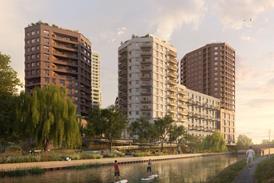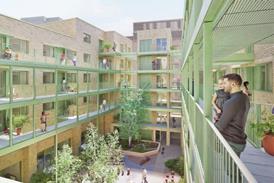I would question whether non-designers, not designers, have too much influence (Debate March 1).

Time and again we see the wider industry frustrated by a lack of progress by those with little or no qualifications, or experience in evaluating design.
As those who have trained for many years (and continue to train — we “practise” architecture) as architects, product designers, urban designers and so on, we formulate solutions based on an in-depth understanding of a number of factors. These encompass the place, the challenge; the functional needs as well as the wider social and emotional backdrop to the situation.
From this deep understanding comes a response that can be measured in terms of design quality. Of course, people will always react subjectively and emotionally. This is not always a bad thing but proper review, determination and assessment must be based on proper assessment — the head, not the heart.
The unwelcome and unhelpful influence comes from those who do not have the same degree of understanding, yet feel able to make qualitative judgements without the need to understand the problem in the same way.
It’s a bit like asking a jury to pass judgement on a defendant without listening to the facts. The decision will inevitably be wrong or, if right, as a result of luck rather than good judgement.”
Mark Leeson
via bdonline
RIBA must move with the times
It seems to me that this problem (Debate March 1) stems from the RIBA’s self-imposed resistance to the changing construction industry.
Architects seem to be taking up a “design consultancy” role rather than a hands-on involvement in construction. After all, we are judged on the quality of the final buildings we produce and not on the trickery of conceptual imagery.
Until this stance changes, then the people who actually monitor the construction and co-ordinate the design process will continue to be labelled the “experts”.
Richard Loft
via bdonline
Postscript
email letters to buildingdesign@ubm.com including your postal address. We reserve the right to edit all correspondence













No comments yet